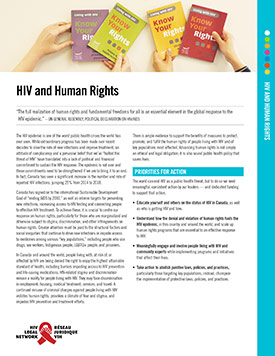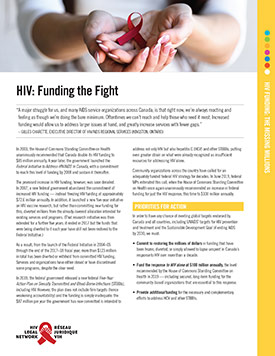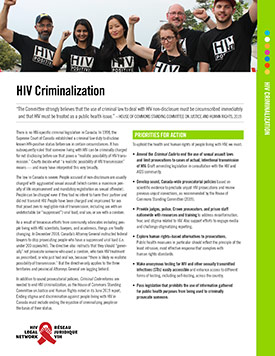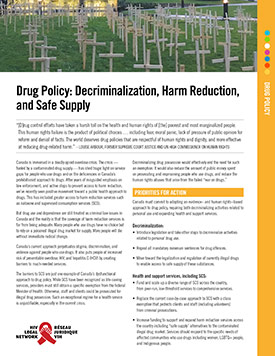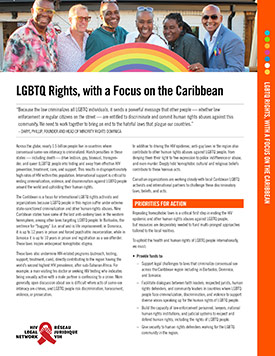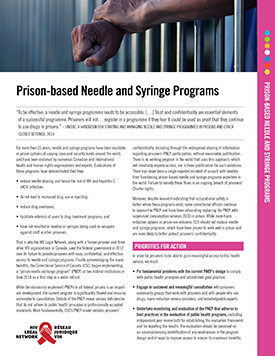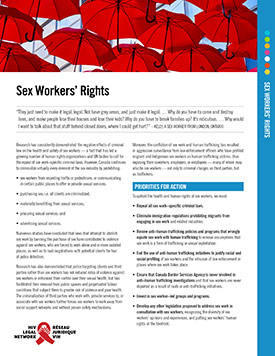In the current political and health climate, we are starkly reminded of HIV as an enduring pandemic and an unresolved public health crisis. Canada must stay on track with a strong HIV response or risk decades of progress.
The dangers of underfunding the response to public health crises are all too evident in the current context. Every day the COVID-19 pandemic highlights the need for robust and ongoing public health responses. So, too, does the drug poisoning crisis that is killing at an alarming rate.
Canada has an opportunity to be a world leader in promoting human rights and ending the HIV pandemic, one of the Sustainable Development Goals all countries have pledged to reach by 2030. An effective response will require adequate investment in evidence-based programs and services, and the right kinds of public policies that will maximize the impact of those resources.
In 2020, the HIV Legal Network produced the following series of concise issue briefs. The first explains in general terms why protecting and promoting human rights is central to an effective HIV response. The others outline what needs to be done in several areas. Each brief provides a short overview of the issue, summarizes key facts and resources, and details priorities for action. While some of the statistics may have changed since then, the issues and their importance have not.
We know that public health crises require adequate committed funding upfront, to avoid devastating future costs — in terms of lives and taxpayer dollars. We see this as the COVID-19 pandemic continues to devastate worldwide; the same is true for HIV.


